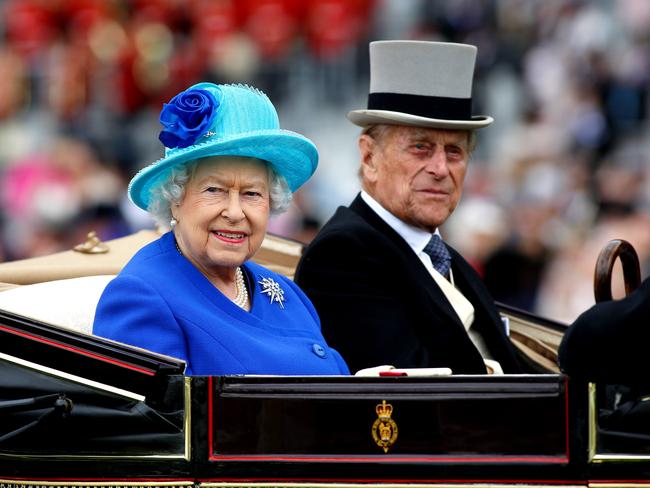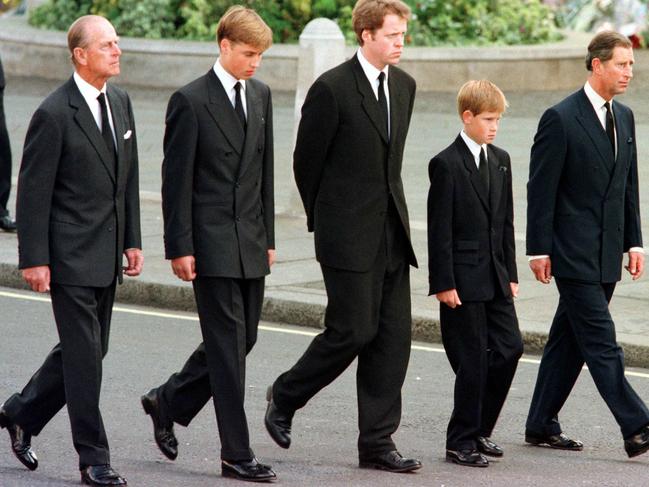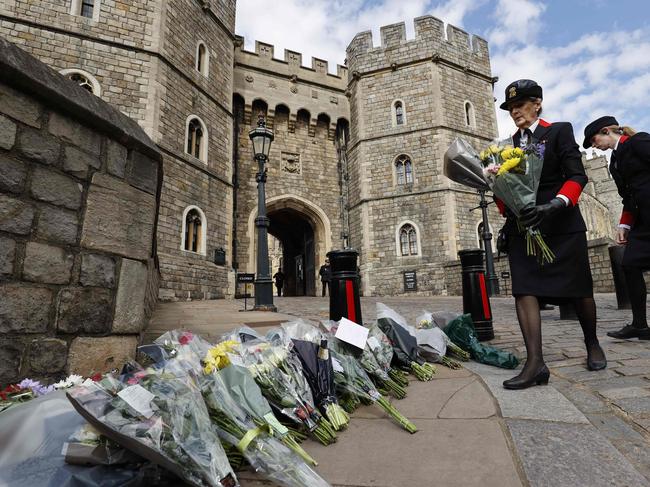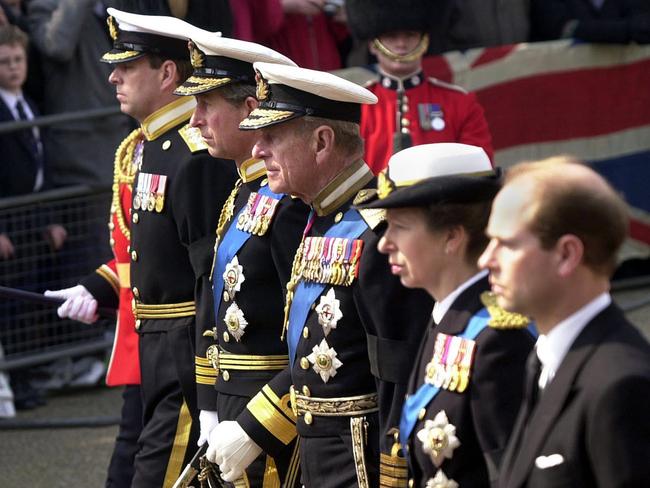How COVID will impact Prince Philip’s funeral
A royal funeral usually draws hundreds of thousands of people to London’s streets, but the coronavirus means we’ll see a vastly different requiem for the Duke of Edinburgh.
Royals
Don't miss out on the headlines from Royals. Followed categories will be added to My News.
The coronavirus pandemic will have a major impact on the carefully laid plans for the Duke of Edinburgh’s funeral.
With restrictions still in place amid the COVID-19 outbreak, the public elements of the final farewell to the Queen’s consort will not be able to take place in their original form.
Under the earlier arrangements for the coming days, codenamed Forth Bridge, thousands of people would have been expected to flock to London and Windsor, with some even camping out overnight to get the best vantage points, for a military procession of Philip’s coffin on the day of his funeral.

Hundreds of members of the armed forces would have been called upon to line the streets in honour of the duke, along with thousands of police officers to keep control of crowds and protect the members of the royal family taking part.
Organisers are said to be “desperately anxious” not to stage anything that attracts mass gatherings, one source said.
The Duke’s funeral is still expected to be televised and held at St George’s Chapel, Windsor Castle.

From the onset of the pandemic, planners have been busy behind the scenes working out a contingency strategy in case the duke died during the coronavirus crisis – a worst-case scenario of major concurrent events – a fear that has come true.
Preparations are expected to centre on Windsor Castle, without the military procession in London or any processions through Windsor.

But the exact final arrangements will depend on how the UK is coping with the outbreak and the current R value – the number of people to whom an infected individual passes on the virus.
England is still in its third national lockdown, with the nation progressing through the easing of restrictions.





